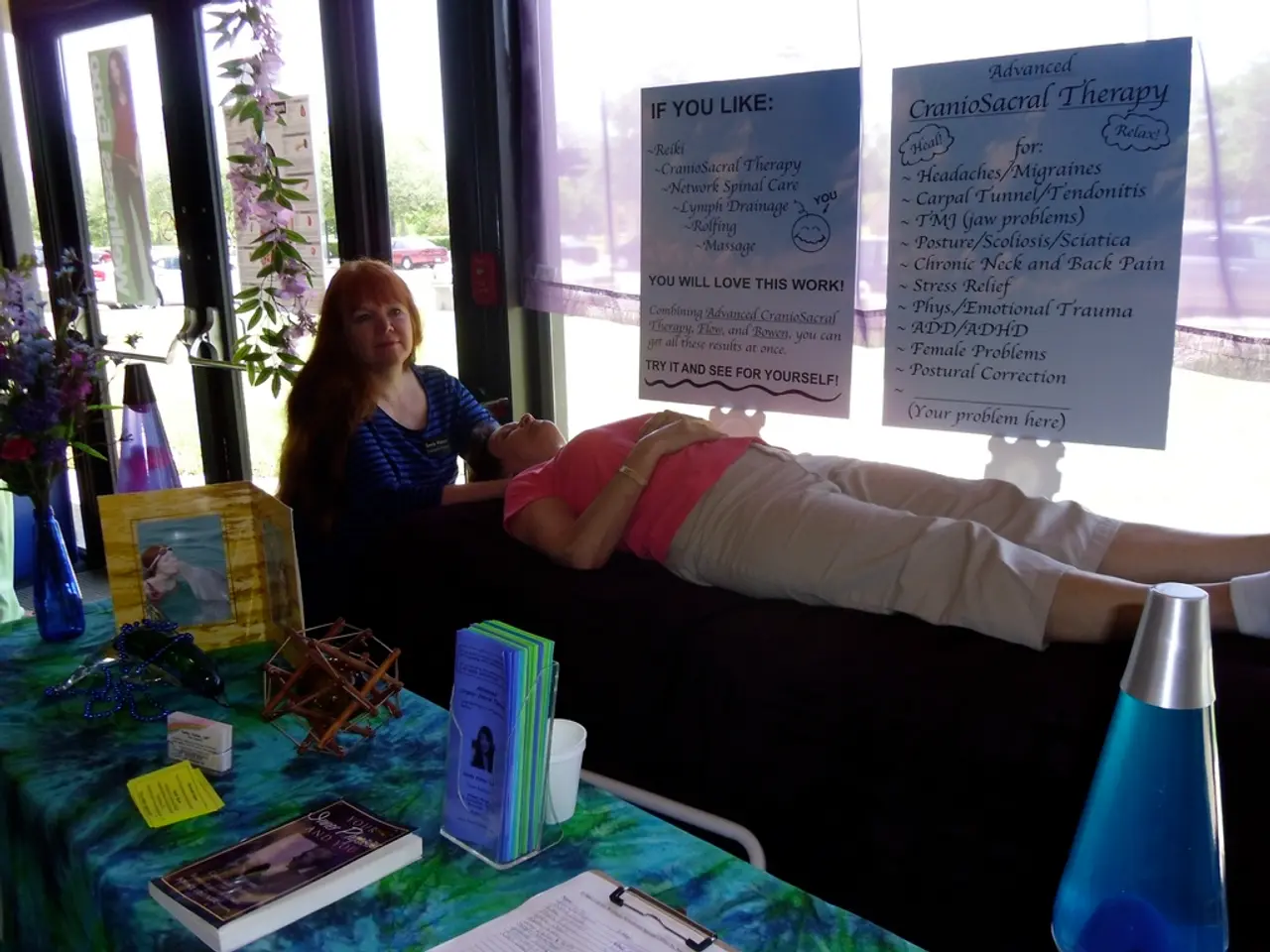navigating fertility with endometriosis: therapies, optimal childbearing age exploration
Endometriosis, a condition that affects an estimated 10% of reproductive-aged women, can significantly impact fertility. The disease causes pelvic adhesions, scarring, and inflammation, which can distort reproductive organs such as the uterus and fallopian tubes, potentially blocking the passage of eggs and sperm. It also forms ovarian cysts (endometriomas) that damage ovarian tissue, reducing egg quality and quantity [1][3][5].
The impact of endometriosis on fertility varies individually, with up to 50% of people with the condition experiencing fertility problems [1][3][5]. However, it's important to note that while the condition raises the infertility rate, it's still possible for someone with endometriosis to conceive without medical assistance.
Medical Assistance for Improved Fertility
For those facing fertility challenges due to endometriosis, several medical options are available. Surgical treatment, particularly excision surgery to remove endometrial lesions and adhesions, can improve fertility chances and relieve pain [2][3]. However, some may require additional fertility support even after surgery.
Assisted reproductive technologies (ART) such as in vitro fertilization (IVF) are frequently recommended when natural conception is difficult. IVF bypasses fallopian tube issues and increases the chance of pregnancy in moderate to severe cases [3][4].
Hormonal therapies to suppress endometriosis activity and reduce inflammation can potentially improve the reproductive environment [3]. Adjunctive therapies aimed at reducing oxidative stress and modulating immune function are emerging but require further validation [3].
Personalised care with specialists, including lifestyle adjustments and integrative wellness approaches, can support hormone balance and overall reproductive health, tailored to individual disease severity and fertility goals [2].
Planning for Pregnancy
Early consultation with a gynecologist or fertility specialist is recommended if conception has not occurred after 6–12 months of trying and endometriosis symptoms are present, to explore these options and optimise fertility outcomes [5]. A doctor can help a person with endometriosis plan for pregnancy and give advice based on individual circumstances.
The results of a 2021 study showed that the live birth rate for people who received endometriosis treatment and IVF increased by about 50% [6]. ART methods such as IVF and ICSI can help people with endometriosis and infertility become pregnant.
Natural Conception and Endometriosis
The chances of conceiving naturally may depend on the severity of endometriosis and its location in the body. At age 40, the likelihood of becoming pregnant within a year is 44% [7]. For those without endometriosis, the rates are approximately 15-20% per month [8].
Endometriosis symptoms can pose challenges for people trying to conceive. Unable to have sex regularly due to pain during intercourse may be one of the causes of infertility rates among people with endometriosis [9].
Lifestyle Strategies for Improved Fertility
Certain lifestyle strategies, such as eating a healthy diet and maintaining a moderate weight, may reduce inflammation in the body and potentially improve fertility [10].
Seeking Guidance and Support
If you are living with endometriosis and are considering starting a family, it's essential to discuss your concerns with a healthcare professional. They can provide guidance and assistance for conceiving either with or without medical assistance. Some common questions to ask a doctor include: When is the best age to try to get pregnant, what is the likelihood of conceiving without medical assistance, and what are the chances of becoming pregnant using ART?
In conclusion, while endometriosis can pose challenges for those seeking to conceive, there are numerous medical and lifestyle strategies available to support fertility. With the right support and guidance, it's possible to navigate these challenges and achieve your dreams of starting a family.
[1] Endometriosis and Fertility
[2] Personalised Care for Endometriosis and Subfertility
[3] Management of Endometriosis-Related Infertility: A Comprehensive Guide
[4] In Vitro Fertilization (IVF) for Endometriosis
[5] American College of Obstetricians and Gynecologists: Endometriosis
[6] Endometriosis Treatment and IVF: A 2021 Study
[7] Fertility and Age: Understanding Your Options
[8] Infertility and Endometriosis
[9] Endometriosis and Sexual Pain
[10] Lifestyle Strategies for Endometriosis Management
- The condition of endometriosis, a health concern impacting approximately 10% of reproductive-aged females, can affect female health, particularly fertility, by causing pelvic adhesions, scarring, and inflammation, which can potentially hinder natural conception.
- For individuals experiencing fertility problems due to endometriosis, healthcare professionals recommend a variety of medical options, such as excision surgery, assisted reproductive technologies like in vitro fertilization (IVF), hormonal therapies, and personalized care approaches to support hormone balance and overall reproductive health.
- To optimize fertility outcomes and explore various medical options, women planning for pregnancy while battling endometriosis are advised to consult with a gynecologist or fertility specialist upon experiencing infertility symptoms for six to twelve months, as the likelihood of conceiving naturally might decrease with the severity of endometriosis.




